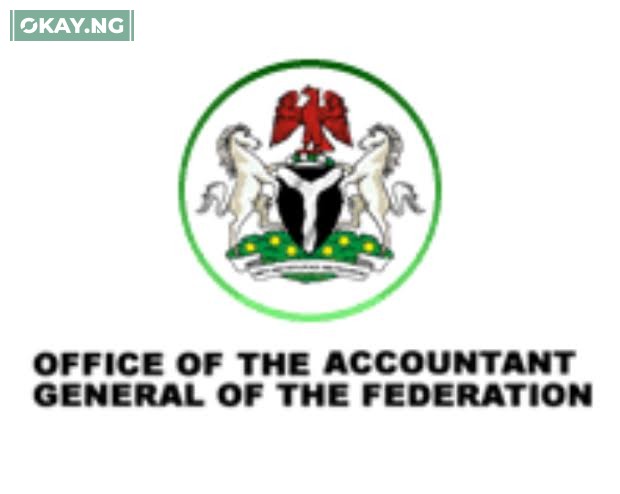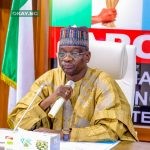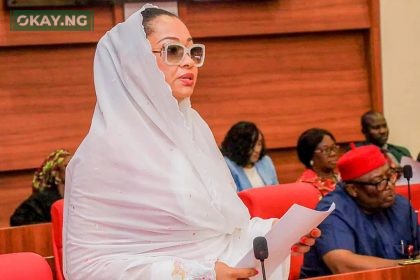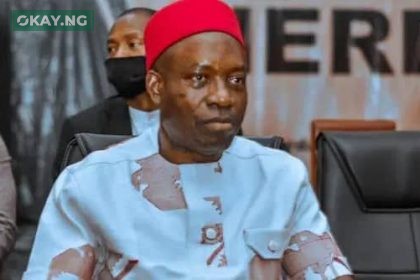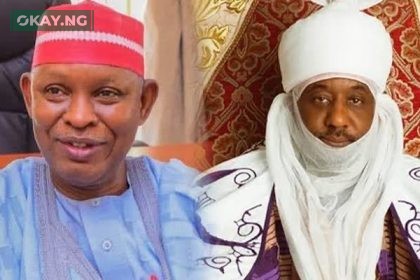State governments and the Federal Capital Territory (FCT) have collectively received N1.6 trillion from the Federal Government between March 2024 and May 2025, aimed at enhancing infrastructure and bolstering security across Nigeria. This was revealed in official records from the Office of the Accountant-General of the Federation (OAGF).
The funds, disbursed over a 15-month period, were part of a broader initiative to bridge critical infrastructure gaps and address security challenges at the subnational level. The details were contained in internal OAGF documents presented at the May 2025 Federal Accounts Allocation Committee meeting and obtained on Sunday.
Okay.ng reports that during the meeting, the committee allocated a total of N1.659 trillion to the federal, state, and local governments—a slight decrease from the N1.681 trillion distributed in April. The disbursements were facilitated through a special intervention programme, relying on non-oil revenue savings to alleviate fiscal strain on state governments and expedite project implementation at the grassroots.
The document, titled “Ledger of Savings on Intervention to States Infrastructure and Security,” indicated that N1.7 trillion had been saved over the 15 months, with N1.6 trillion paid out to states and the FCT, leaving a balance of N100 billion as of May 16, 2025. The report did not specify the exact allocation for each state or clarify whether these funds were separate from the usual monthly revenue.
The breakdown revealed 21 separate payments during the period, with the first tranche of N200 billion transferred on March 20, 2024, covering January and February. Subsequent monthly payments were typically N100 billion or more, peaking at N222 billion in May 2024.
This financial support follows President Bola Tinubu’s July 2023 approval of the Infrastructure Support Fund (ISF) for all 36 states, designed to cushion the impact of petrol subsidy removal. Dele Alake, then Special Adviser to the President, explained that the ISF would enable states to invest in transportation, agriculture, health, education, power, and water resources—areas critical for economic growth and job creation.
Alake also noted that a portion of monthly distributable proceeds would be saved to mitigate inflation and exchange rate pressures resulting from subsidy removal and exchange rate unification. “These savings will complement the efforts of the ISF and other existing and planned fiscal measures, all aimed at ensuring that the subsidy removal translates into tangible improvements in the lives and living standards of Nigerians,” he stated.
Monthly transaction records showed a consistent pattern, with a few exceptions. For instance, in March 2024, N300 billion was received in non-oil savings and N100 billion paid out; in May 2024, the highest single disbursement of N222 billion occurred despite no recorded receipt; and in February 2025, N200 billion was paid to states without a corresponding inflow, suggesting use of previous balances.
Despite these interventions, concerns remain about the transparency and effectiveness of fund utilization. Auwal Rafsanjani, Executive Director of the Civil Society Legislative Advocacy Centre, criticized both federal and state authorities for what he described as “poor and unaccountable use” of the N1.6 trillion disbursed. He argued that the funds have not achieved their intended objectives, citing persistent insecurity and inadequate infrastructure.
Rafsanjani remarked, “First and foremost, we are in the era of financial recklessness. We are in the era of collapse of responsible governance, accountability, and a collapse in poor projects and programmes that would impact the Nigerian people… Instead, we are seeing democratic scrambling of public resources without accountability for personal use.”
He further asserted that the focus of political actors has shifted to the 2027 elections, with public spending increasingly directed toward political ambitions rather than development. When asked if the intervention funds were judiciously spent, Rafsanjani responded, “No, this can’t be judiciously spent, because if it were, we would have seen the positive impact on the nation.”
The regular monthly payments, typically N100 billion, underscore the Federal Government’s structured approach to supporting subnational governments. However, the lack of transparency in fund allocation and utilization continues to raise public concern.


